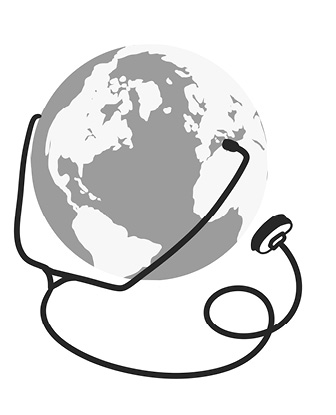It’s one piece of advice that college students hear over and over again: Study abroad.
In today’s increasingly global world, learning another language is invaluable in any profession. Observing how people work and study in other parts of the world inspires ideas in students and being immersed in another culture is an experience that no one could ever forget.
It stands to reason that studying abroad is a worthwhile experience. But many students fail to study abroad, not because of disinterest or cost, but because of rigorous course requirements.
Studying abroad is particularly difficult for nursing students, whose degree requirements include sequential classes and clinical labs that are not offered abroad.
According to Therry Eparwa, chair of the Global Nursing Committee, the Seattle University College of Nursing offers three different programs for nursing students interested in spending time abroad.
These are summer programs in global health in Belize or Nicaragua, or an exchange program in Sweden that is only available to students in the transfer cohort and takes place during the academic year.
The nursing department at Seattle U, like many other programs related to science, technology, engineering, and math (STEM) programs across the nation, is working to increase opportunities for students to study abroad.
According to Eparwa, the mission of the Global Nursing Committee is to “teach aspects of cultural competency.”
The skills learned abroad are as important to nursing as to any major, and, according to Eparwa, the nursing students at Seattle U have definitely shown interest in foreign programs.
Meghan Cummings, a senior nursing major who studied abroad twice during her undergraduate study, understands firsthand the difficulty of making studying abroad fit with a nursing curriculum.
“Basically if you’re going to study abroad and get credits, you can’t take nursing courses,” Cummings said.
Because foreign programs don’t offer clinicals, and credits usually don’t transfer between programs, nursing students looking to study abroad usually have to save up core credits and spend their time abroad fulfilling these liberal arts requirements.
In order to make study abroad fit into her schedule, Cummings went to Paris through an outside organization called IPA during the summer after her freshman year and participated in the Seattle U Belize trip this past summer.
Although Cummings speaks highly of her experience, many students avoid these programs because of the cost or because they need the summer break to work, intern, or gain clinical experience.
Sarah Potts, another nursing student at Seattle U, didn’t study abroad because she couldn’t make it fit into her schedule, and said that she knows many students who felt similarly.
It is not just nursing students who struggle to make studying abroad a reality. Studying abroad as a science major is easier said than done.
For all science majors, degree requirements are completed in a sequenced classes. If a student takes fall quarter to study abroad and misses the first of a three-quarter series, he or she might have to wait a whole year before starting the class sequence.
“The key is planning ahead,” said Mary Beth Falkner of the Education Abroad Office when asked about making studying abroad work for science and engineering majors. “When you come in as a freshman and you know you’re going to be in engineering and you want to study abroad, then you have to start planning from the first day you’re here. Then what we can do is tag team with academic advisors to shift things around in the schedule so that you can be gone during the year.”
Falkner noted that many science students avoid the education abroad office because they assume that it’s not a possibility for them. She wants students to know that studying abroad is possible and the best thing to do is to make an appointment right away so that advisors can work with a student’s individual schedule and circumstances.
Beyond studying abroad, there are other opportunities for students to work travel into their college careers.
Immersion programs such as Engineers Without Borders provide students the opportunity to work on an engineering project in a foreign country. In addition, the National Science Foundation (NSF) offers scholarships for undergraduate students interested in doing science research abroad.
Regardless of how each person makes it work, it is important that all students know that studying abroad is a possibility.
Dr. Charity Lovitt, a Seattle U chemistry professor who spent time doing research in Cambodia and Germany, can’t overemphasize the importance of travel to the study of sciences.
“We’re a global culture; it helps to understand that we have a global perspective,” Lovitt said. “But for me personally it became important to understand the universal nature of scientific methods and also the universal concept of human personhood. Everyone has a different interpretation of who they are and how they value themselves and that is an incredibly valuable experience.”








